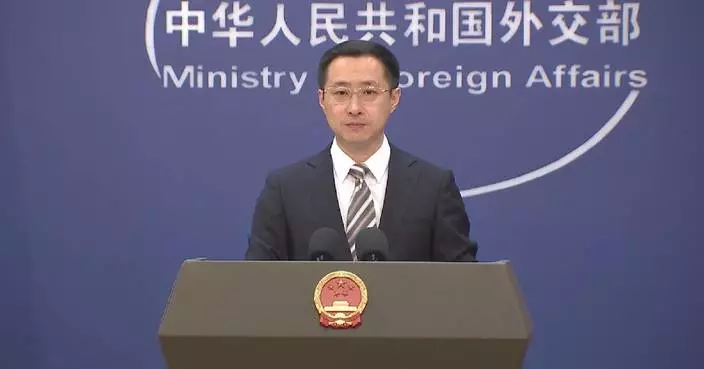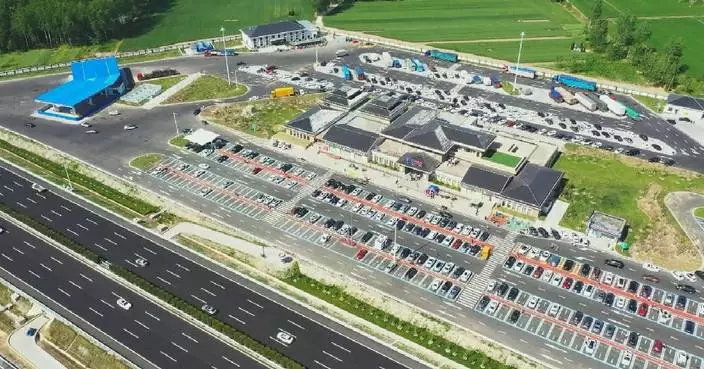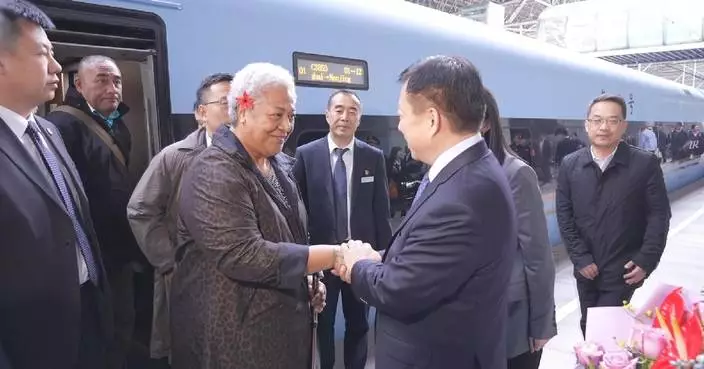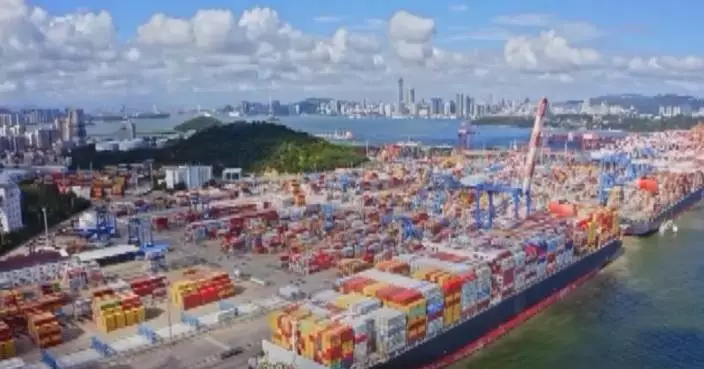The Global Economic and Trade Measures Index (GETMI) reached 105 in September, reflecting an aggravating trend in global economic and trade frictions, said a spokesperson for the China Council for the Promotion of International Trade (CCPIT) during a press conference in Beijing on Friday.
The comprehensive index marked a year-on-year decrease but a month-on-month increase.
Specifically, the total trade volume involved recorded a 1.2 percent decline compared to the previous year but rose by 14.4 percent compared to the previous month, underscoring escalating global economic and trade tensions.
India, Brazil, and the United States ranked as the top three among 20 countries and regions on the GETMI, with the U.S. leading in terms of the total volume involved.
"In terms of industry indexes, the electronics sector ranks highest among the 13 major industries analyzed for economic and trade frictions. Companies in this field should closely monitor relevant laws and policies in some countries and regions to effectively manage risks and develop response strategies," said Sun Xiao, the CCPIT spokesperson, during the press conference.
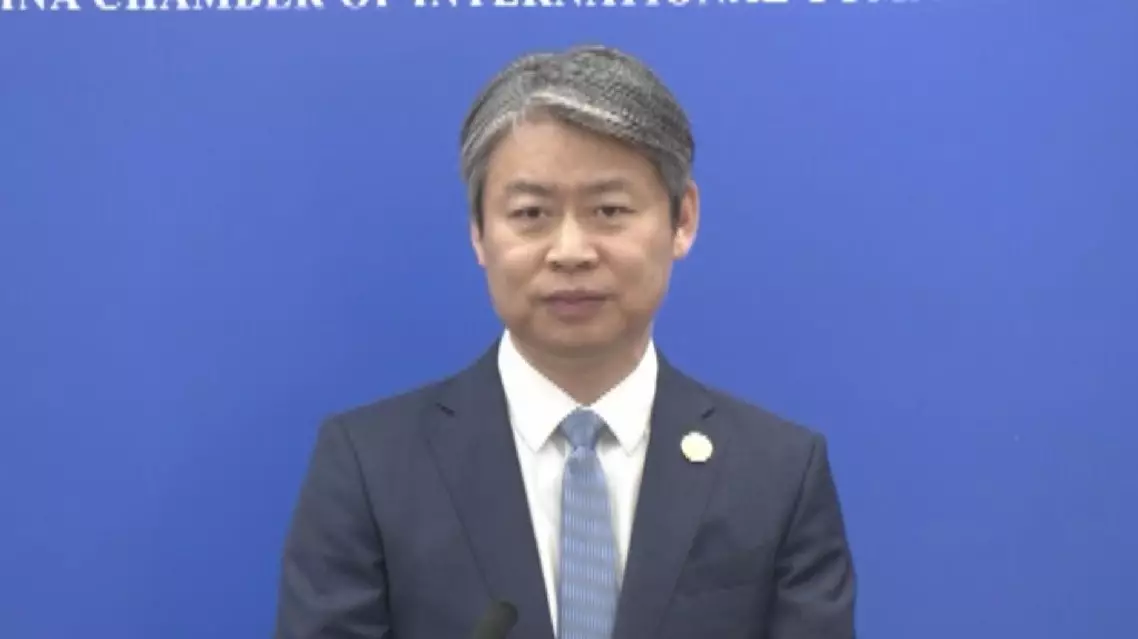
Global trade frictions worsen in September: CCPIT
As COP29 nears its conclusion in Baku, Azerbaijan, negotiations remain contentious over the scale and sources of climate finance but show progress on carbon trading mechanisms, emissions reduction targets and post-2025 climate finance goals, according to Xu Huaqing, an expert with the Chinese delegation.
COP29, formally known as the 29th session of the Conference of the Parties to the United Nations Framework Convention on Climate Change, is taking place in Baku from Nov 11 to 22.
This year's conference aims to establish a new climate change funding goal to replace the existing target of mobilizing and providing 100 billion U.S. dollars annually from developed countries to support developing nations.
In addition to climate finance, the conference also focuses on topics such as global carbon trading markets and global energy transition from fossil fuels.
Xu Huaqing, chief scientist of China's National Centre for Climate Change Strategy and International Cooperation and an expert with the Chinese delegation at the conference, noted positive developments in global carbon trading mechanisms.
On the first day of the meetings, countries at the convention gave the green light to carbon credit quality standards, which are seen as critical for the UN goal of establishing a carbon market to fund carbon reduction initiatives.
Meanwhile, countries like Brazil, the United Kingdom, and the United Arab Emirates have announced their 2035 Nationally Determined Contribution (NDC) targets, with the UK pledging to cut greenhouse gas emissions by 81 percent from 1990 levels by 2035.
In addition, some progress was seen early on Thursday after a week of technical negotiations and three days of ministerial consultations, when a draft decision text outlining two very different options for the post-2025 climate finance goal for developing nations was released, though the most contentious issues - such as who pays, how much, and the structure of the goal - remain unresolved.
Option one proposes an annual climate finance goal starting in 2025 and running through 2035. It suggests that the finance would flow from developed to developing countries, including both government funds from developed nations and private finance mobilized by these governments. This option focuses on both a provision target and a mobilization goal.
In contrast, option two sets a target to be achieved by 2035, with funds coming from a broad range of sources and instruments, and the innovative sources are not specified. This option includes a mobilization goal led by developed countries' governments, as well as a larger, more comprehensive investment target.
"First, the scale of funding remains a major point of contention. Developing countries, led by the Group of 77 (G77), are seeking 1.3 trillion U.S. dollars annually from developed nations. In contrast, developed countries argue that current efforts can only stretch to two to three hundred billion, based on the Copenhagen pledge to provide 100 billion U.S. dollars annually in climate finance to developing nations by 2020 - far short of the amount proposed by developing countries," said Xu.
The G77 is the largest intergovernmental organization of developing countries in the United Nations, which provides the means for the countries of the South to articulate and promote their collective economic interests and enhance their joint negotiating capacity on all major international economic issues within the UN system, and promote South-South cooperation for development.
"The second division concerns sources of finance. Developing nations propose that 900 billion U.S. dollars of the 1.3 trillion should come from direct government contributions, with the remaining 400 billion mobilized from private sectors by these governments. However, analysis of past funding shows most of the 100 billion-U.S. dollar-pledge came from private sources, not government grants," he continued.
While consensus on specific climate finance targets may remain elusive at COP29, Xu believes significant progress can still be made on broader issues, such as the scale and allocation of funding.
COP29 carries the international community's hopes for advancing climate policies, with the realization of climate finance being a key factor in achieving these goals. Xu emphasized that all parties must show greater sincerity and commitment to ensuring tangible progress in climate finance.
According to him, China remains steadfast in its role as a responsible country, committed to working alongside the EU and other nations to ensure the full implementation of the Paris Agreement.
COP, or Conference of the Parties, refers to a series of formal meetings where governments assess global efforts to advance the Paris Agreement and UN Framework Convention on Climate Change, with the aim of limiting global warming increase to 1.5 degrees Celsius.
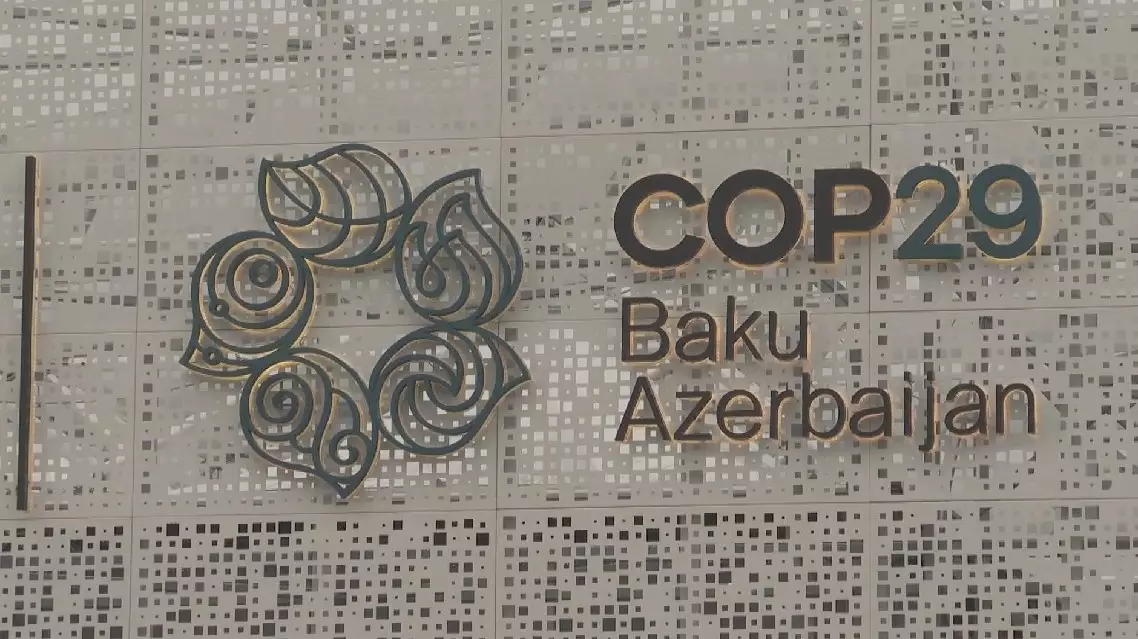
COP29 shows progress amid disputes over climate finance scale, sources: expert





